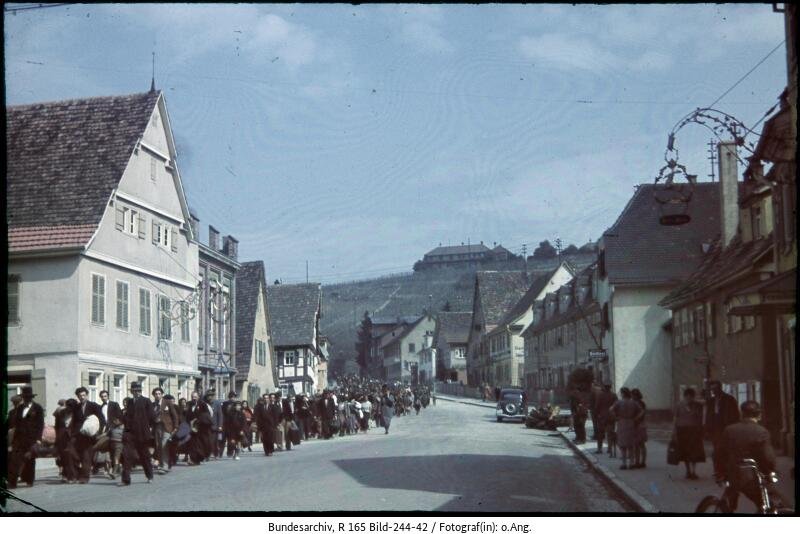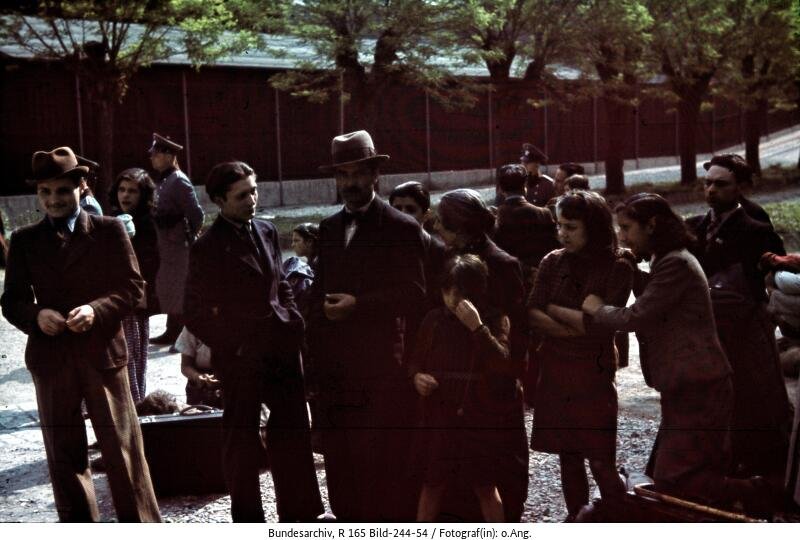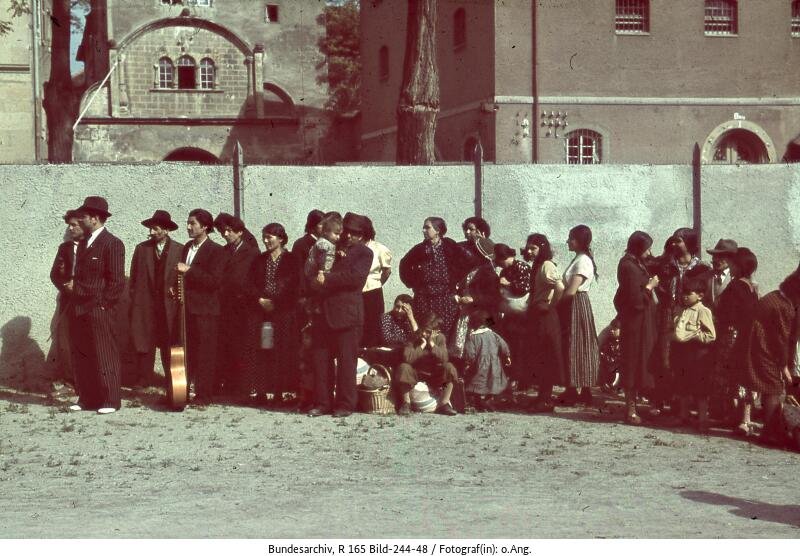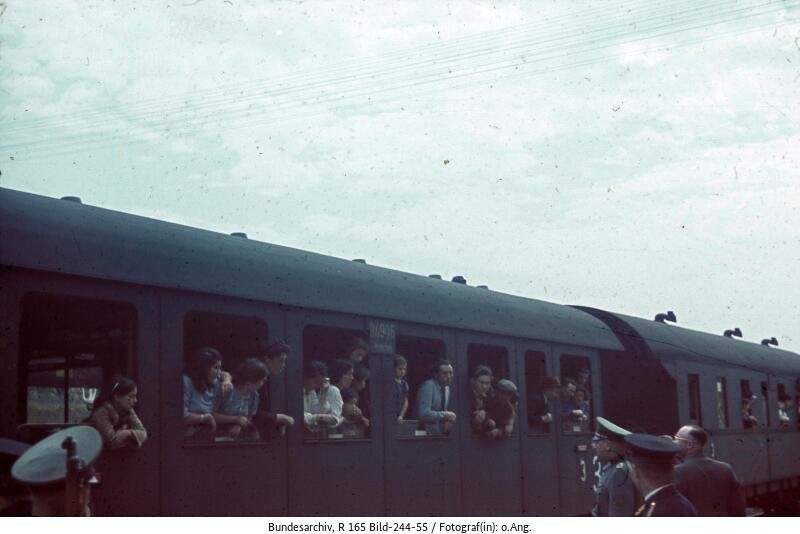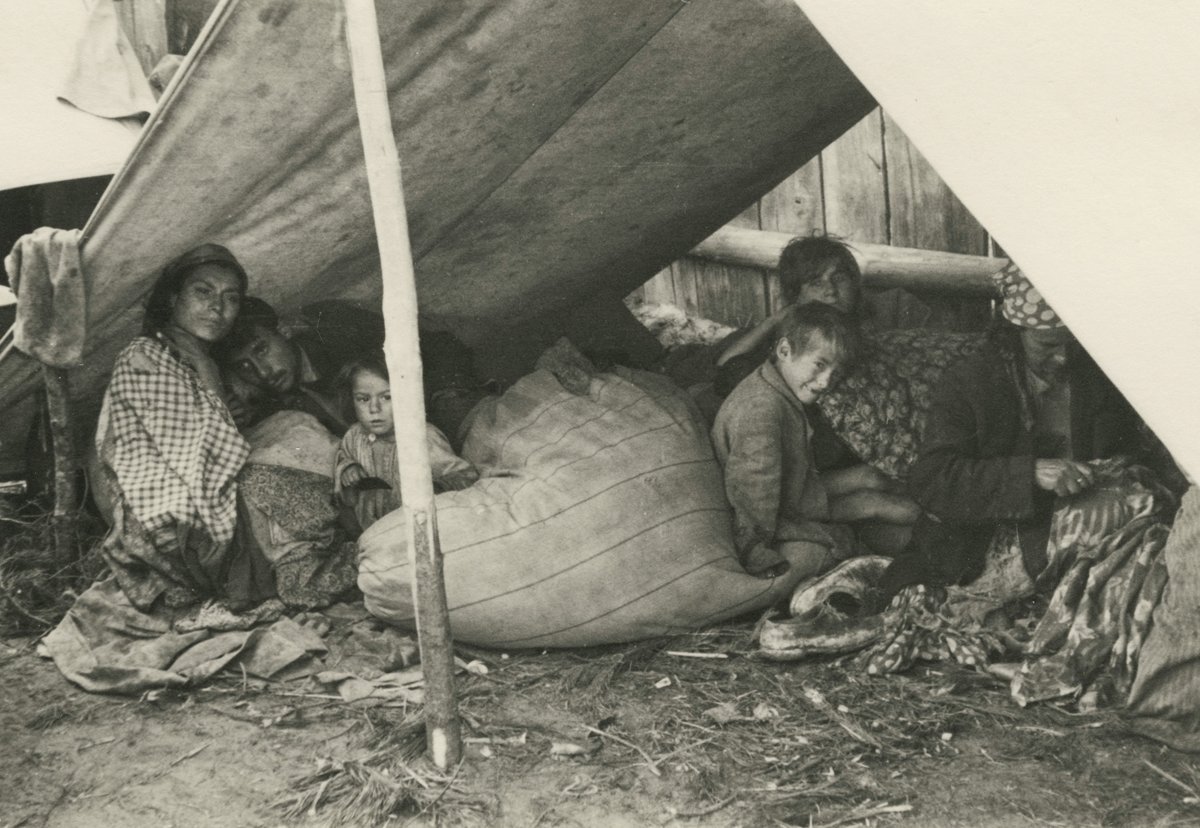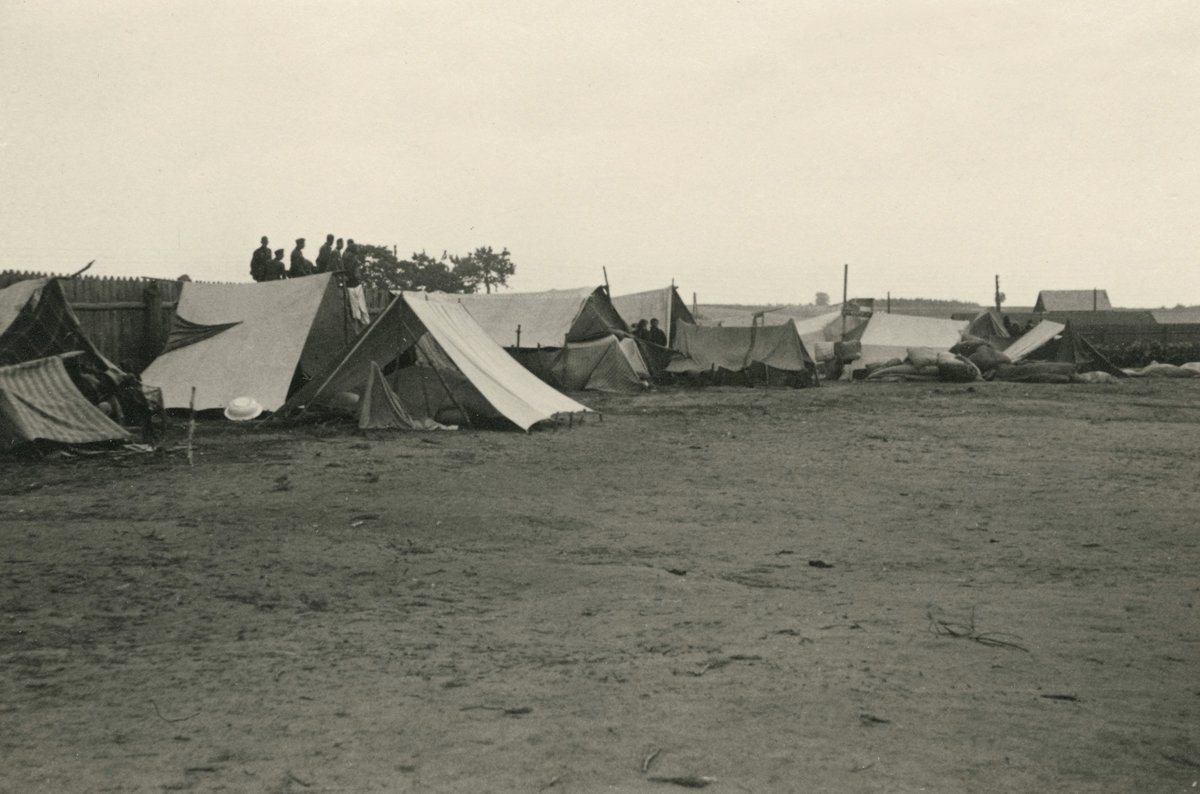In May 1940, the Nazis deported more than 2500 Roma and Sinti from western Germany to the occupied region in southern Poland.
They were taken from their homes to three assembly camps in Hamburg, Cologne, and Asperg and then deported by train to labour camps and ghettos. Many of them later died of malnutrition and disease. Some of them were murdered.
According to the National Socialist ideology, the Roma and Sinti, like the Jews, are inferior races. After the Nazis came to power, they made life difficult for the Roma and Sinti. They were no longer allowed to practise their traditional professions, for instance as musicians. In some cities, Roma and Sinti were forced to live in segregated camps where conditions were poor. Children were placed in children’s homes. Moreover, the Nazis sterilised Sinti and Roma so that they would no longer be able to bear children.
In September 1939, shortly after the start of the Second World War, the SS decided to transport the 30.000 Roma and Sinti living in Germany to labour camps in the occupied region of Poland. Their deportation in May 1940 was the first step. In 1942, Heinrich Himmler ordered all Sinti and Roma from Germany and the occupied territories to be deported to Auschwitz-Birkenau. Most of the deportees were murdered there.
Sinti and Roma from the occupied countries of Europe were also sent to Auschwitz-Birkenau and murdered there. The total number of victims runs into the hundreds of thousands.
The Roma and Sinti call the mass murder of their people porajmos, 'the devouring'.
